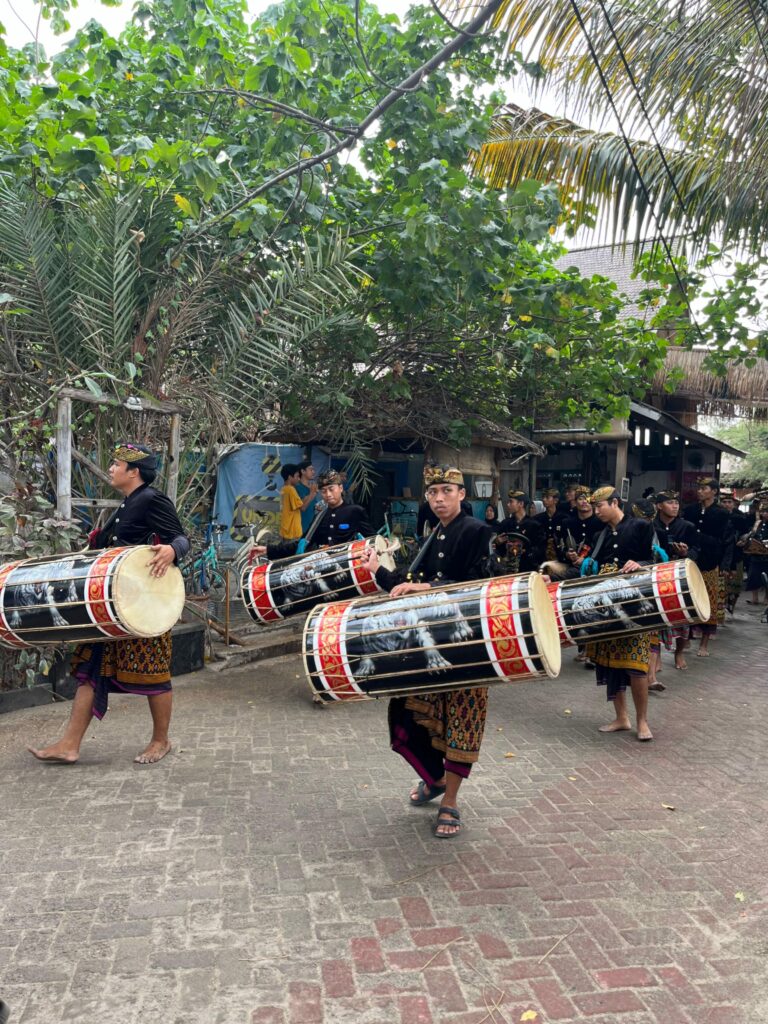
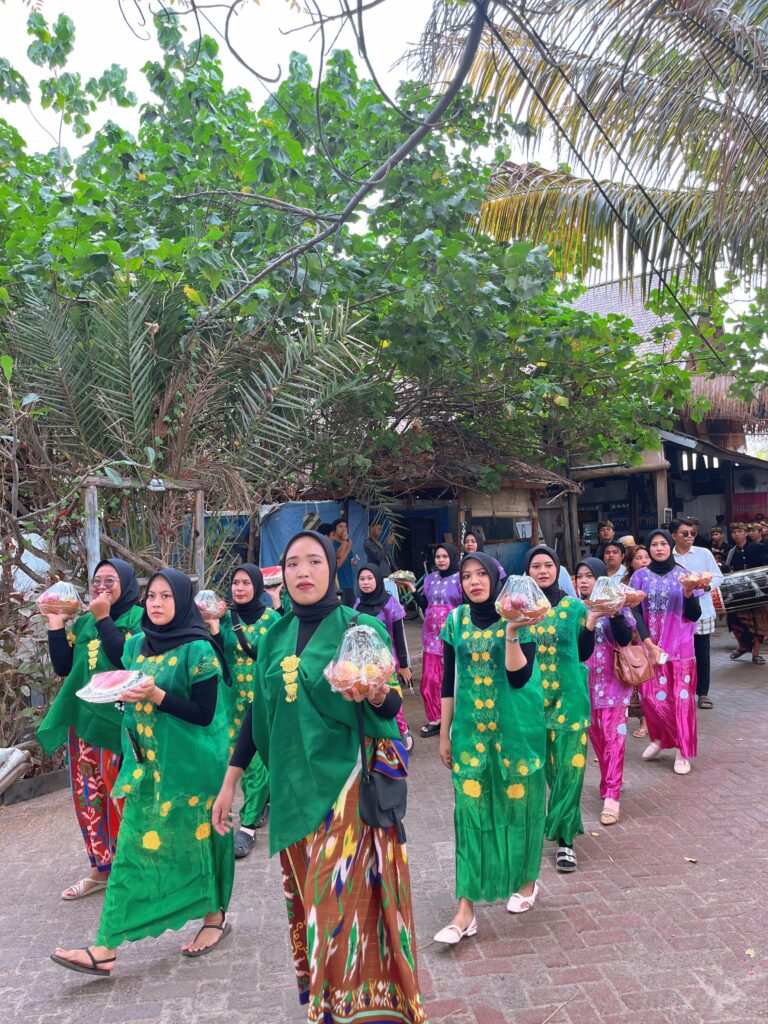
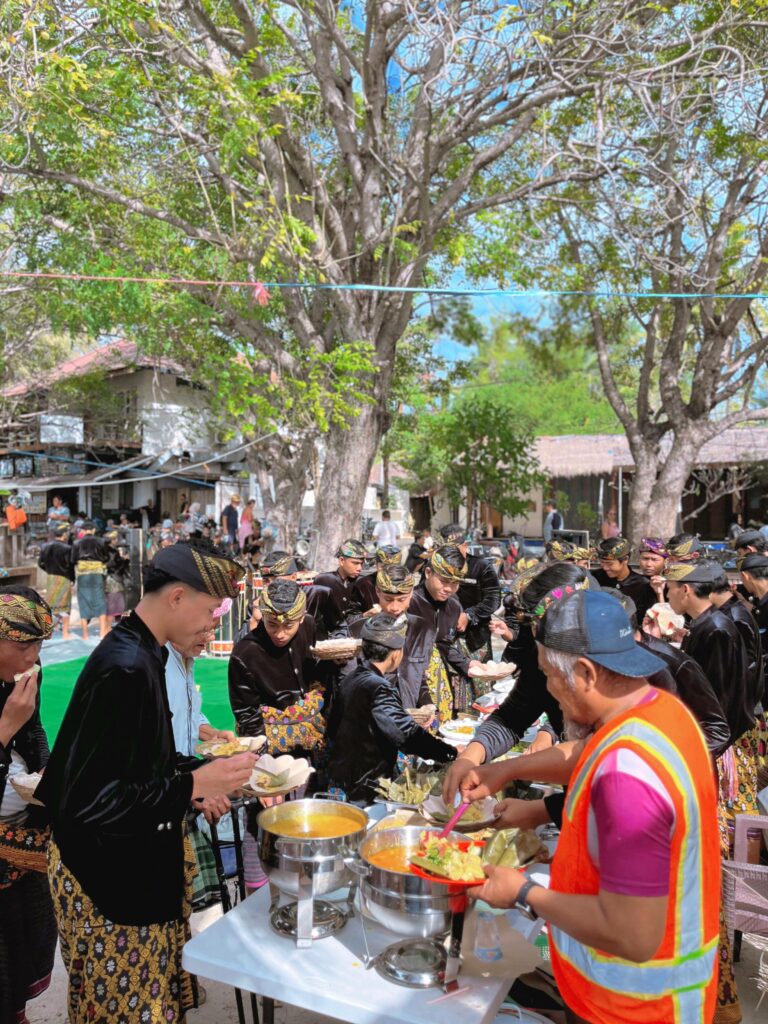
Nestled in the tranquil embrace of Indonesia’s Gili Air, the island’s cultural vibrancy shines through its timeless traditions. Among these cherished customs is the amalgamation of Mandi Safar and Rebo Bontong, celebrated annually in September. These intertwined rituals serve as a poignant reminder of the island’s rich heritage and the deep spiritual connection shared by its inhabitants.
Mandi Safar, often referred to as Rebo Bontong, holds a special place in the hearts of the Sasak community of Lombok and the surrounding Gili Islands. Occurring during the Islamic month of Safar, this sacred ceremony represents a harmonious blend of cultural practices and religious observance. It is a time for spiritual reflection, purification, and renewal.
The essence of Mandi Safar lies in its simplicity and symbolism. As the community gathers at communal bathing sites, individuals immerse themselves in the cleansing waters, seeking purification of both body and soul. Prayers and supplications fill the air, invoking blessings for the year ahead and warding off misfortune. Through this ritual act of cleansing, participants reaffirm their faith and commitment to spiritual growth.
Rebo Bontong, which translates to “last Wednesday” in Indonesian, marks the culmination of Mandi Safar. Falling on the final Wednesday of the month, this auspicious day holds significant cultural and spiritual importance. It is a time for communities to come together in prayer and reflection, seeking divine blessings and guidance for the future.
A Special Celebration: Mandi Safar on Gili Air – August 28, 2024
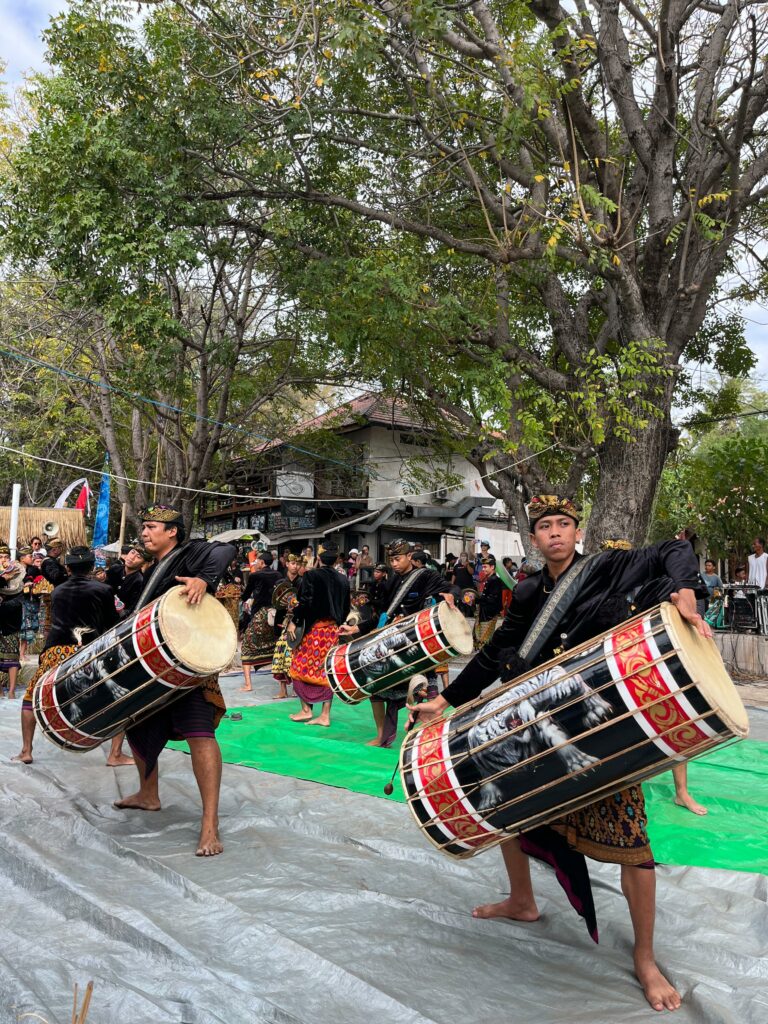
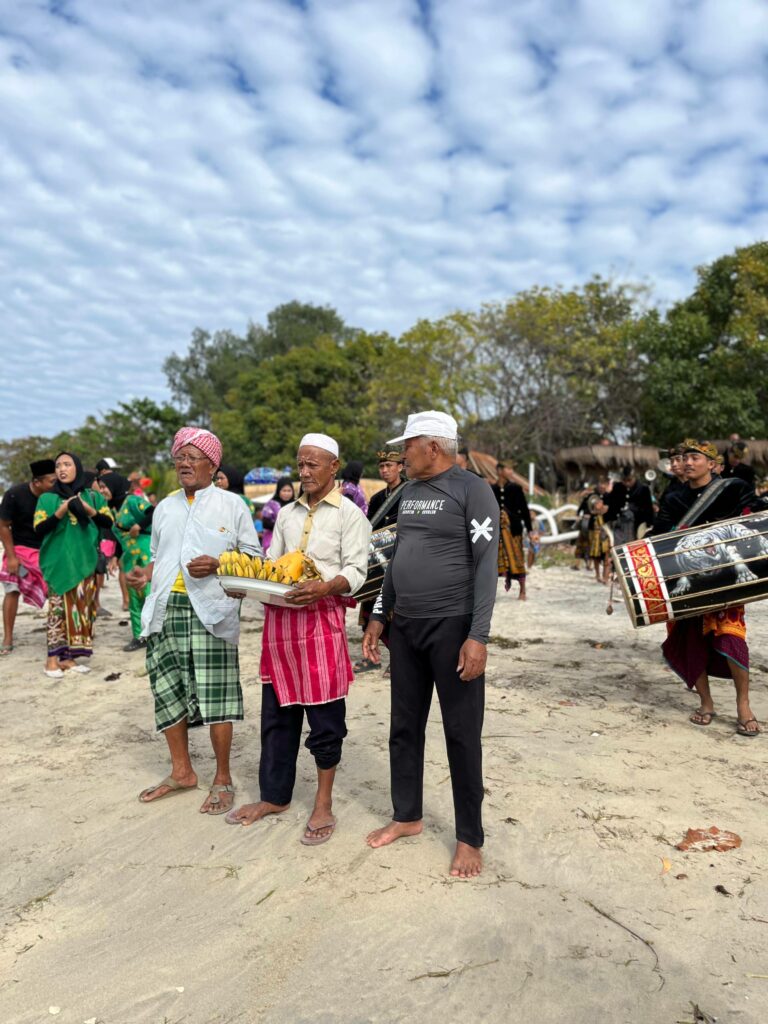
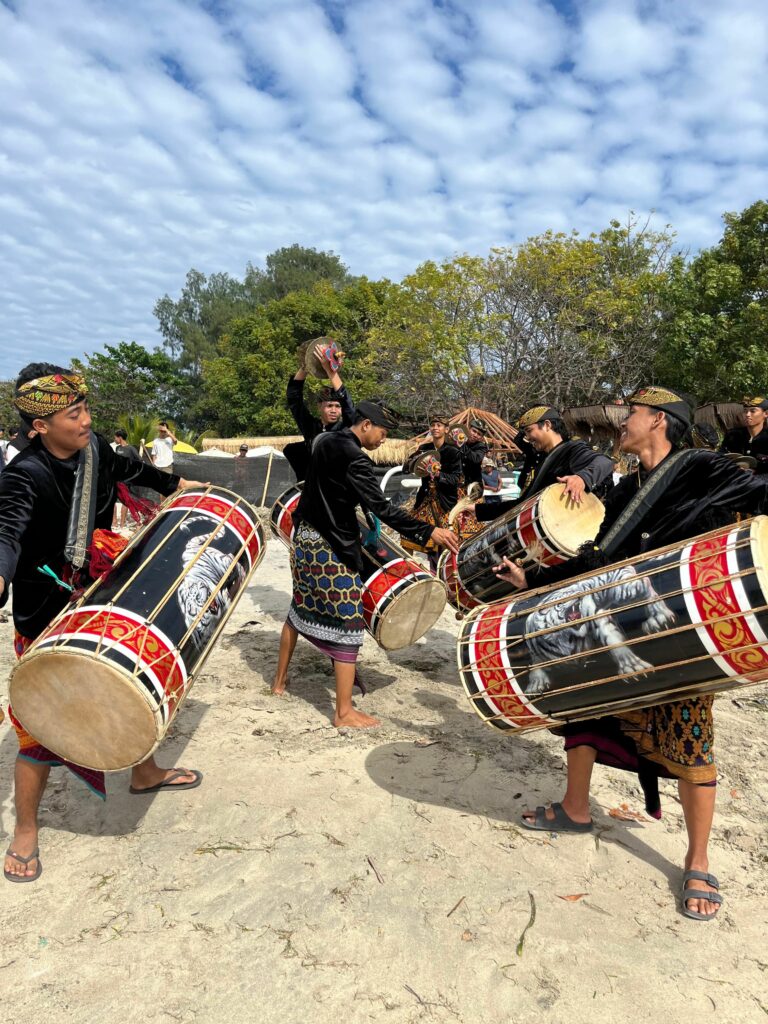
On Wednesday, August 28, 2024, the tradition of Mandi Safar will be observed simultaneously across the three Gili Islands—Gili Air, Gili Meno, and Gili Trawangan. This annual event, cherished by the residents of these islands in North Lombok, West Nusa Tenggara (NTB), is a profound cultural and spiritual occasion.
The festivities will begin with a ceremony of remembrance and salutations to the Prophet Muhammad SAW, led by local residents and leaders. The ritual also features a vibrant procession accompanied by the rhythmic beats of beleq drum music, a traditional element of the Sasak tribe around Gili Air. This drum music infuses the event with an energetic and festive atmosphere, celebrating the rich cultural heritage of the island.
Following the drum procession, offerings are floated or released into the sea. This act, led by local religious figures, is accompanied by collective remembrance and prayer, aimed at seeking safety and warding off negative forces. The community then transitions to a group bathing event on the beach, where the atmosphere is filled with joy and camaraderie.
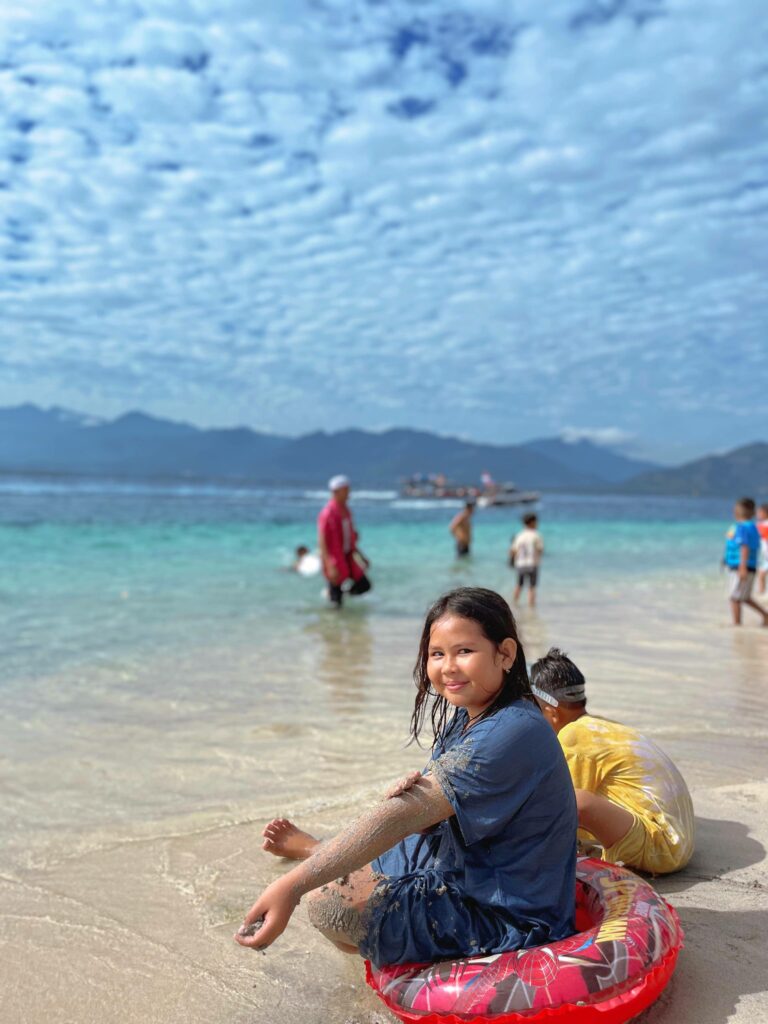
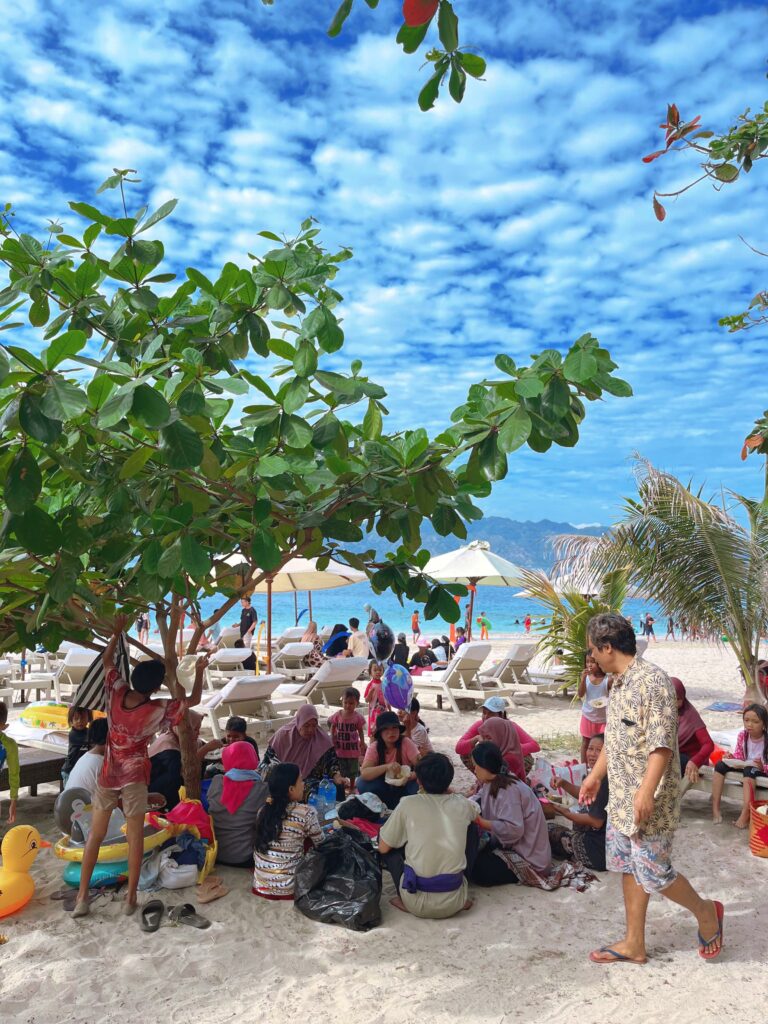
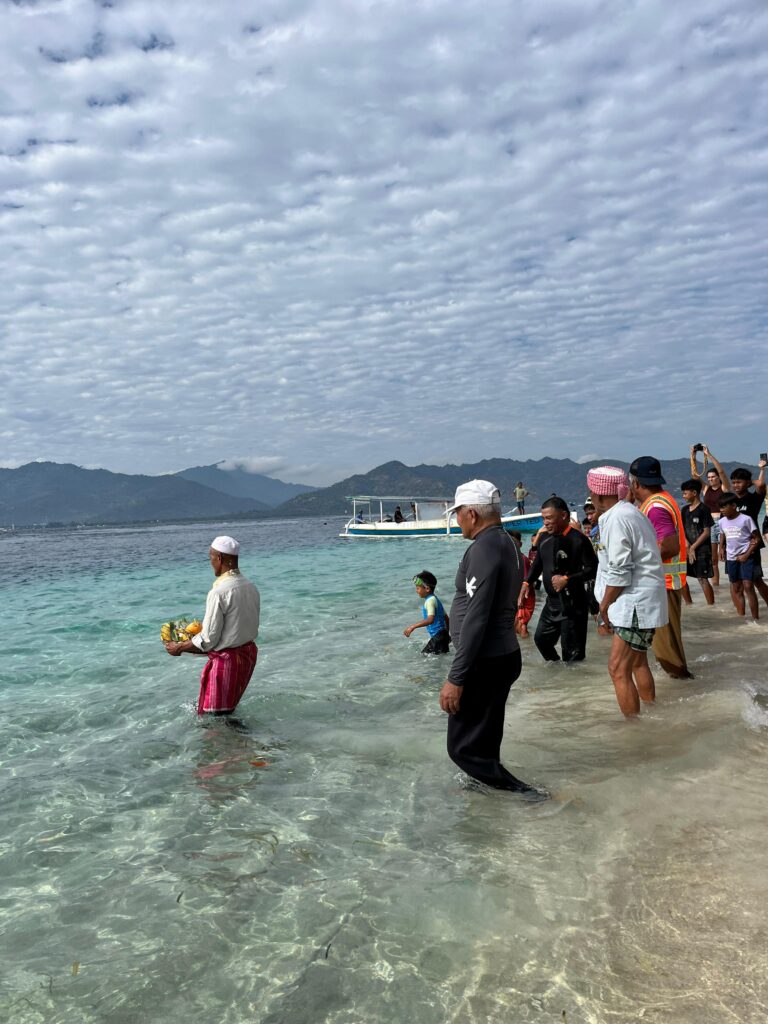
As part of this lively celebration, the beach becomes a gathering place where residents enjoy a picnic with food brought from home. The playful spirit of the day is highlighted by residents engaging in friendly water fights, fully embracing the communal and festive nature of the event.
The convergence of Mandi Safar and Rebo Bontong epitomizes the cultural richness and religious devotion that define life on Gili Air and its neighboring islands. Against the backdrop of the island’s natural beauty, these traditions serve as a testament to the enduring resilience of the local community and their unwavering commitment to their heritage.
For visitors to Gili Air, witnessing Mandi Safar and experiencing Rebo Bontong offers a profound insight into the island’s cultural tapestry. Whether observing the rituals with reverence or participating alongside the local community, guests are welcomed into a world of spiritual reverence and communal harmony.
As the tranquil waters of Gili Air reflect the brilliance of the night sky, let us embrace the timeless traditions of Mandi Safar and Rebo Bontong. In these sacred moments of reflection and renewal, we find solace in the enduring bonds that unite us with the island’s rich cultural heritage.
